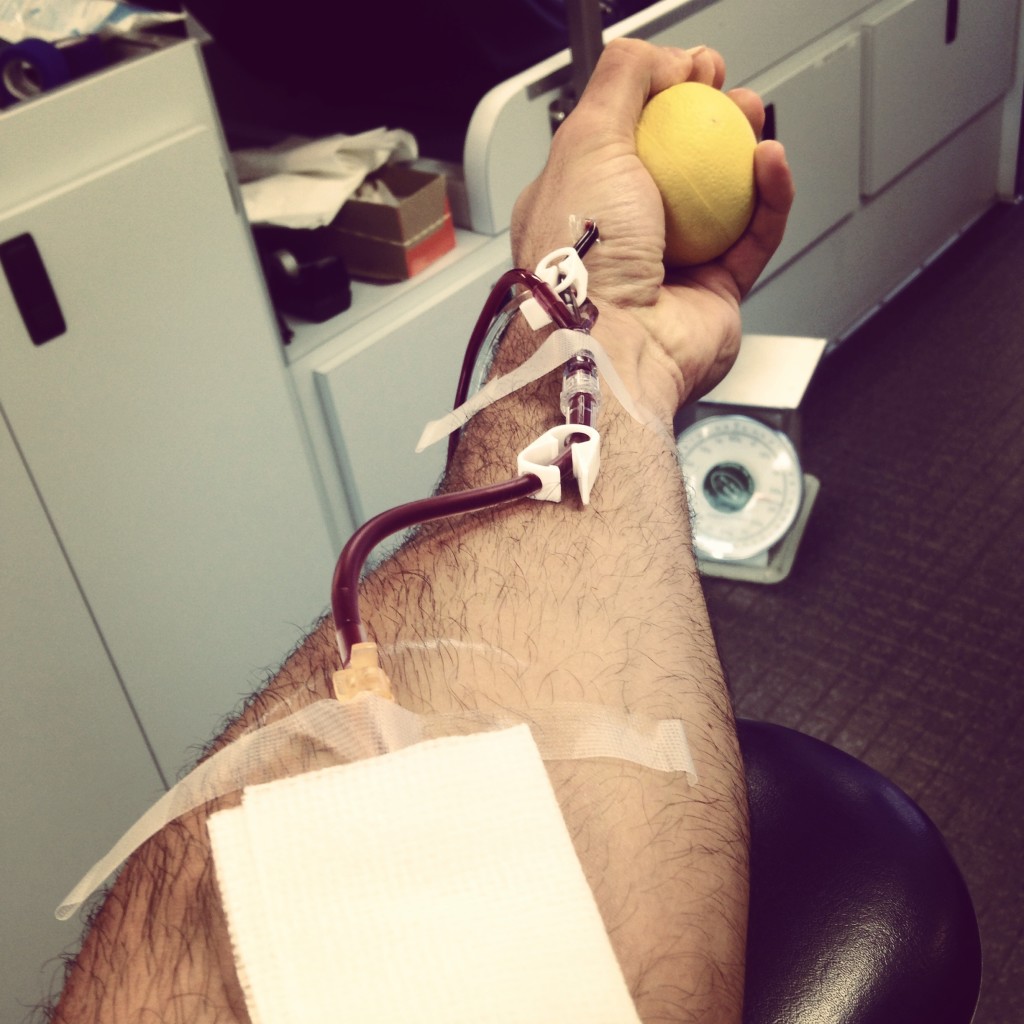Did you know that during the Middle Ages, it was believed that all illnesses, from plague and smallpox to epilepsy and gout, stemmed from an overabundance of blood? The typical treatment was bloodletting, or the nicking of veins or arteries to cause blood flow.
Strangely, we still practice something similar to bloodletting today – blood donations.
I can remember the first time I donated blood – I was in high school and a friend convinced me to donate with him. I was hesitant at first, scared of the needle. But he finally talked me into it. Turns out, he didn’t weigh enough and wasn’t aloud to donate. Unfortunately, I had no excuse. So, I went through with it, and it wasn’t nearly as bad as my mind made it out to be.
Now, I try to donate blood every 8-10 weeks. Not only is there an altruistic component to donating blood; there is also a health-promoting reason for doing it, especially for men and post-menopausal women. And it’s directly tied to bloodletting. Plus, I’m a weirdo and like to watch the phlebotomist insert the needle into my vein.
What Happens If You Don’t Bleed Often
Iron found in your blood is vital for providing oxygen to your cells. But iron easily builds up in organs like your liver, heart and pancreas. If you’re an adult man or post-menopausal woman and not eliminating the excess iron through monthly blood loss or blood donation, it can buildup and cause damage to your body tissues. Some serious health issues associated with iron toxicity are:
· Cirrhosis
· Liver cancer
· Cardiac arrhythmias
· Diabetes
· Alzheimer’s disease
· Bacterial and viral infections
Research shows that more Americans have iron levels that are considered too high, than levels that are deficient. In a study with over 1,000 people, only 3 percent were iron deficient, but 13 percent had iron overload.
Potential causes of high iron levels include consuming excess iron in the form of supplements or from well water, from iron cookware, and from iron-fortified processed foods, like cereal.
If your iron levels are too high and you can’t donate blood, consider:
· Consuming dark chocolate, green tea, or rosemary when eating iron-rich foods like steak to reduce iron absorption.
· Use the spice turmeric or a supplement that contains curcumin, a compound that may reduce iron in the liver.
· Taking a supplement that contains astaxanthin, a carotenoid that has been shown to reduce iron-induced oxidative damage.
So give it a try. Not only will you improve your health, you’ll save lives!
Do you support your local blood bank; What are your thoughts on blood donations for health reasons? Share your stories, comments or questions?


Leave a Reply